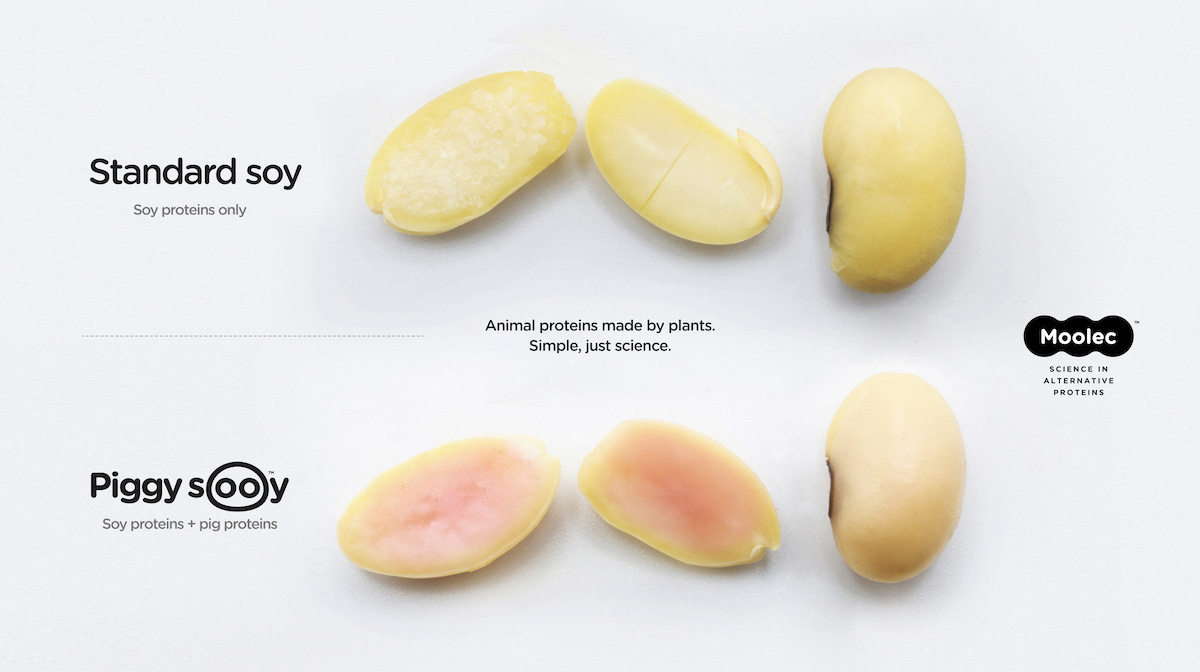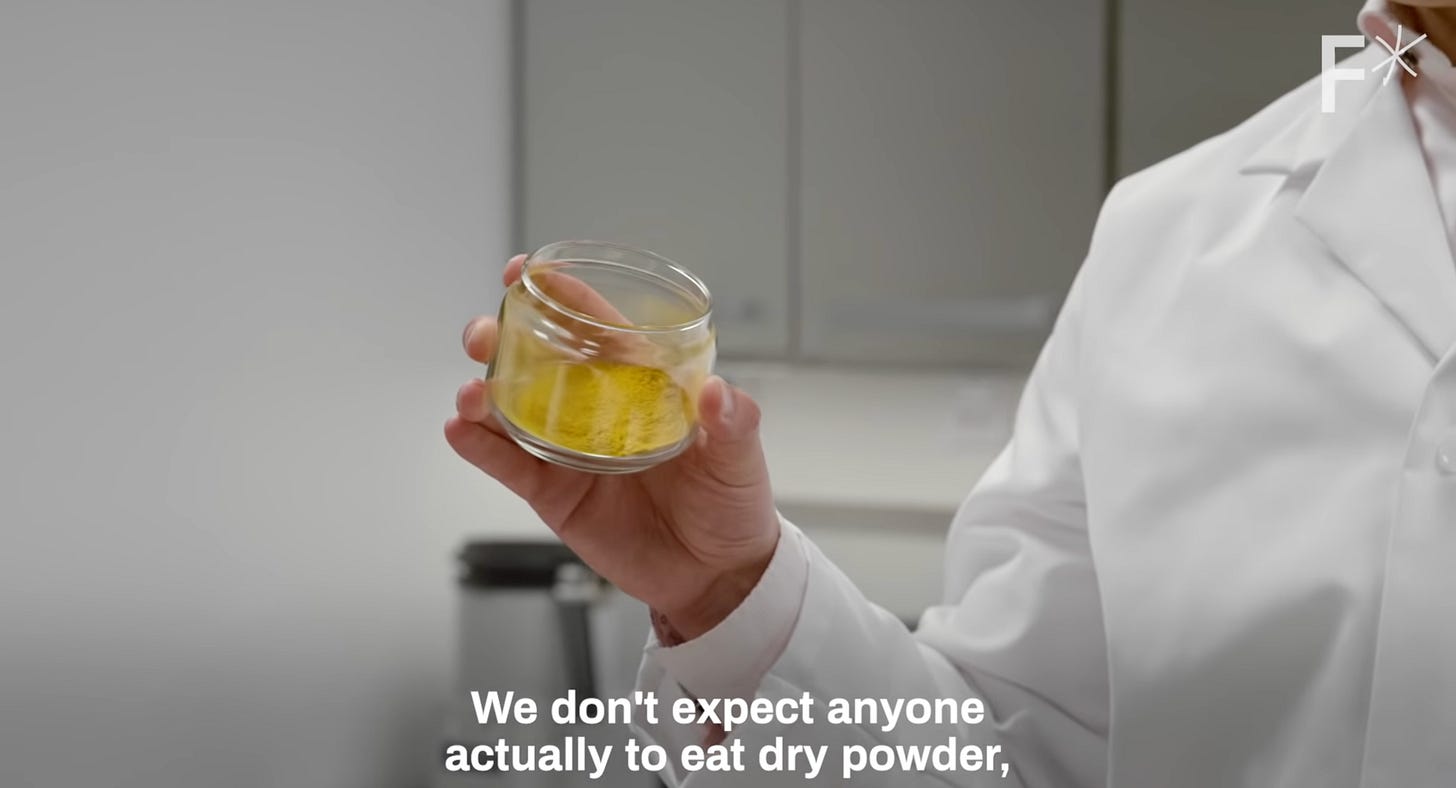Better Bioeconomy Weekly - Jul 3rd 2023 🌏
Congrats, you’ve made it halfway through 2023 👏🏾
Happy July!
As of today, we have completed 50.4% of 2023. So, congrats, you’ve made it halfway through the year. I’m proud of you! 👏🏾
Here’s your treat: 🍫
Alright, when you are done with your chocolate, buckle up for another edition as we dive into this week's newsletter!
BIO BUZZ
🌏 Cultivated meat approved in the US. Which country is next?
The US approval sets a precedent for the safety of cultivated meat, validating the technology and potentially influencing regulatory processes in other key markets such as the EU, the UK, Israel, and the APAC region.
The impact of the US approval on regulatory processes varies by market. In the EU, the approval process consists of a risk assessment by the European Food Safety Authority (EFSA) and authorization by the European Commission.
In the APAC region, the US approval can motivate regulators in countries like Japan and South Korea to expedite their processes. Singapore, Australia/New Zealand, and China have their own unique regulatory landscapes and varying timelines for approval of cultivated meat.
Read full article - Future Food Now
🇮🇩 Green Rebel expands across APAC through partnerships with top quick service restaurants as they prepare for Series A
The Indonesian company focuses on providing healthier food choices through plant-based whole-cut meat substitutes, aligning with the rising trend of flexitarianism in the APAC region.
Green Rebel is expanding across Indonesia, Singapore, Malaysia, and South Korea with 1,800+ distribution points. This month, it has partnered with Starbucks Malaysia, offering meatless items in 364 Starbucks outlets.
The company plans to target Series A funding round later in the year to support global expansion and profitability, seeking strategic investors for deeper penetration in Asia and expansion into Europe and the US.
Read full article - Green Queen
🌱 Plantible Foods is using the most abundant protein in the world to produce plant-based egg replacer that outperforms eggs
Plantible Foods has opened a 140-acre lemna (commonly known as duckweed) farm and launched its first product called Rubi Whisk, a plant-based egg replacer with superior performance in various applications.
The core ingredient in Rubi Whisk is RuBisCO, a protein found in all leafy greens making it the most abundant protein in the world. Plantibe extracts RuBisCO from lemna, resulting in a complete protein with a neutral taste, odour, and colour.
Rubi Whisk is highly soluble, forms stable emulsions, and can be whipped into stiff peaks. Plantible claims it outperforms eggs in various applications, gaining attention in baked goods, meat alternatives, plant-based dairy, and sports and adult nutrition products.
Read full article - AgFunder
🇨🇿 World’s first burger made from a blend of cultivated pork and microalgae launched by Czech-based Mewery
The burger offers ethically sourced and environmentally friendly meat products at lower costs. Its proprietary technology reduces costs by up to 70% compared to traditional FBS methods.
Mewery is working with the Czech government on "non-employee" tastings to potentially allow public tastings of cultivated meat next year.
The company is primarily focusing on gaining regulatory approval in the U.S. and Singapore, as these are the only two countries that have currently approved cultivated meat, with expectations of approval within the next two years.
Read full article - Green Queen
🐷 Soybeans that taste like pork developed by Moolec Science using molecular farming
Moolec is developing various meat proteins in plants as functional ingredients to enhance taste, appearance, texture, and nutrition of meat substitutes. The Meat Replacements Program resulted in 26.6% of total soluble protein in soy seeds.
Moolec's achievement highlights the potential of molecular farming as a viable technique for producing animal proteins and has the potential to revolutionize its business model.
Molecular farming utilizes plants as protein factories, offering potentially higher efficiency and affordability compared to other alternative proteins.
Read full article - Green Queen
📈 Synonym launched Scaler, the first free online techno-economic analysis tool for fermentation to help the growth of biomanufacturing
The goal of Scaler is to promote the growth of biomanufacturing by providing companies with a tool to understand the requirements and costs of building and operating at the necessary scale.
Companies can use Scaler to forecast their production costs at industrial scale and create commercial roadmaps and manufacturing strategies.
Scaler allows users to customize their models and provides a comprehensive report with key insights, including CapEx & COGS breakdown, sensitivity analysis, bankability analysis, and more.
Read full article - Synonym
🇪🇸 AgriCultura Celular España launched with the aim to make Spain a global player in the cellular agriculture
The non-profit organizationa intends to lead Spain's cell ag ecosystem by promoting collaboration, technology development, and knowledge transfer, with the goal of creating a more sustainable and ethical food production system.
The organization seeks to provide consumer-facing information about the science behind cellular agriculture and the need for change in the food system, particularly in Spanish.
Several key players in the cellular agriculture industry in Spain include:
GrowMeat, a cultivated meat startup;
Biotech Foods, a cultivated meat producer acquired by JBS and building a large-scale facility;
Cocuus, using 3D bioprinting for plant and cell-based meat;
Cubiq Foods, focusing on developing plant-based and cultivated fats.
Read full article - vegconomist
BIO BUCKS
💰 Female and LGBTQIA+-led Joyful Ventures debuts with $23 million to back startups in the sustainable proteins sector

The fund focuses on investing in startups at the pre-seed and seed stages that have strong B2B opportunities and are innovating technologies related to plant-based, precision fermentation, mycoproteins, molecular agriculture, and cultivated technologies.
Joyful Ventures aims to drive climate solutions by supporting startups that contribute to the broader food ecosystem, addressing issues such as reducing water footprint, improving plant protein crop texturing, and creating sustainable end products.
The fund's founders emphasize the long-term nature of their investments and seek companies that understand the challenges of disrupting the traditional food system, while also diversifying revenue streams beyond food commodities.
Read full article - TechCrunch
🇩🇪 Next Gen Foods announced a high-value media-for-equity deal with SevenVentures to increase awareness of TiNDLE in Germany
The strategic partnership (valued at at least $10 million) aims to expand TiNDLE's brand recognition and educate consumers about plant-based food, which aligns with the growing trend of reducing meat consumption in Germany.
The investment from SevenVentures (the investment arm of Germany’s largest media and digital company), along with the successful Series A raise, provides Next Gen Foods with resources to expand marketing efforts, promote the TiNDLE brand, and promote plant-based foods.
Germans, particularly young people, are experiencing a cultural shift towards more conscious consumption and eating habits, leading to a decrease in meat consumption and an increasing interest in plant-based options.
Read full article - Green Queen
🇮🇳 Omnivore announced first close of its third fund with $150 million for investing in agrifood tech startups
The VC firm, which is a pioneer in investing in Indian agrifood technology, plans to invest in 25-30 new startups in seed and series A rounds, with initial checks ranging from $1-5 million.
Established in 2011 by Mark Kahn and Jinesh Shah, Omnivore supported over 40 startups with the objective of enhancing farming's profitability, resilience, and sustainability. In the past year, it has also made a couple of exits.
The Mumbai-based VC, which raised $82 million for its second fund, says its third fund will prioritize catalyzing climate action in agriculture and focus on agrifood life sciences, rural fintech, and climate-smart agriculture.
Read full article - AgFunder
🇭🇰 Vitasoy recorded HK$104 million ($13.3 million) in profit for the financial year 2022-2023
The Hong Kong-based company recorded a significant turnaround compared to a loss of HK$213 million ($27.2 million) in the previous fiscal year. In Hong Kong, Vitasoy’s revenue grew by 11%, representing a strong recovery.
Vitasoy's Chinese soymilk market continued to lead, with a substantial operating profit of RMB40 million ($5.5 million), despite a slight 2% drop in revenue.
Vitasoy experienced growth in its Australia and New Zealand operations, with a 3% revenue increase, although profit from operations decreased by 89% due to higher overheads.
Read full article - vegconomist
🐟 Bluu Seafood secured $17.5 million in Series A funding
The Hamburg-based company has applied for scientific approval to distribute its cultivated seafood products in the US, marking the first such application from a European cultivated seafood company.
The company also has an application in Singapore and expects approval for its cultured fish products by 2024.
Bluu Seafood uses stem-cell technology to cultivate fish from non-GMO Atlantic salmon and Rainbow trout cells, with a focus on sustainable aquaculture methods to combat overfishing and pollution.
Read full article - Green Queen
🇸🇪 Hooked Foods raised SEK6 million ($550k) in its first limited crowdfunding
The funding will be used to scale up its technology and make its products widely accessible to consumers. Aside from the crowdfunding, the company has raised over €5 million from a limited group of impact investors.
The Swedish company plans to enter the German market through a partnership with sales agency Ooha, which has expertise in the German market.
Hooked Foods offers a portfolio of plant-based alternatives to traditional seafood, including salmon, fish sticks, and tuna, replicating the taste, texture, and nutritional profile of traditional fish.
Read full article - vegconomist
SOCIAL FEAST
🎀 Microplastics, amirite?
🏷 Navigating the marketing challenge: Animal-free products and the regulatory guidance gap
The use of terms like "vegan" or "plant-based" alone may not be sufficient to avoid consumer misunderstandings or legal risks, as regulatory authorities lack clear guidance on proper food labeling.
Some common terms used in daily language cannot be used to market animal-free products, requiring creative approaches from vegan and plant-based food companies.
Different countries have varying regulations and guidelines regarding the labeling of plant-based dairy-free products, with ongoing discussions and drafting of dedicated guidelines in certain regions like the UK.
Read full post by Mathilde Do Chi
🇨🇳 Pros and cons of gas fermentation in China
Gas fermentation in China offers carbon capture benefits and leverages the country's strong biomanufacturing industry, abundant resources, and well-developed infrastructure.
While the technology pathway is mature and scaling processes have been validated, challenges include heavy upfront capital investment, limited added value of products, and concerns about gas supply stability and economy.
The gas fermentation industry in China has a large downstream market with few domestic players, emphasizing the need for diversification and high-value products to ensure a better return on investment.
EAR FOOD
⚖️ Pro-tech or anti-ecology? The GMO debate
Show: Red to Green Food Food Tech
Rachel Carson's book "Silent Spring" had a significant impact on shaping public perception of modern agriculture and created awareness about the interconnectedness of humans and nature.
The introduction of genetically modified crops three decades later faced negative media attention, partially influenced by the PR troubles faced by Monsanto and other agrochemical companies due to Carson's work.
The debate surrounding Genetic Engineering includes topics such as GM labeling, viewing agriculture as a system, and questioning the fairness of labeling anti-GMO activists as anti-science.
💡 Insights from Europe's scale-up scene with Narjis Chakir
Show: FoodTech Junkies
Guest: Narjis Chakir, ScaleUps Programme lead at EIT Food
Narjis is a dynamic leader in the EIT Food RisingFoodStars program, working towards creating an inclusive future of food.
She brings together a network of aspiring scale-ups in the Agtech and Foodtech sectors, fostering collaboration among startups, investors, corporates, universities, research centers, and public institutions.
Narjis shares insights into the challenges and opportunities within the Agtech and Foodtech sectors, the importance of collaboration in scaling impact, and the role of innovation in driving meaningful change.
VISUAL DELIGHT
💨 From space research to dinner plates: The story of Solar Foods’ Solein protein
Solar Foods is creating protein from air and electricity. This approach aims to detach food production from agriculture, reducing the environmental impact and eliminating the need for vast amounts of space and resources.
With a significantly lower impact compared to plant-based proteins and animal products, Solein offers a more sustainable and scalable solution for food production.
Solein's neutral flavour and powdered form make it easily integrate into various food products. This versatility allows Solein to seamlessly fit into people's regular diets and contribute to a more sustainable and efficient global food system.
Watch full video - Freethink
That’s all for this week. Take care and have an awesome week! 🙌🏾
Want to stay up-to-date with weekly news and updates? Subscribe for free!
If you liked this newsletter, please consider sharing it with your friends.
Got any ideas on how I could improve the newsletter? Your input is super valuable to me. Drop me a line or two on LinkedIn or Twitter and let's start a conversation!







